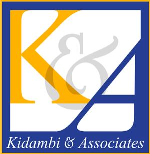President Trump signed his “Buy American, Hire American” executive order at a factory in Kenosha, Wisconsin, on April 18th. While doing so, he rallied his base by first bashing NAFTA and then the outsourcing of U.S. jobs and promised to “make sure that more products are stamped with those wonderful words: ‘Made in the USA.'”
In that same speech, he went on to add that H-1B visas, “should include only the most skilled and highest-paid applicants and should never, ever be used to replace American workers.”
The Executive Order (EO) is now being used as de facto guidance on how petitions are adjudicated by the USCIS and by U.S. Consulates. In fact, it appears the words “most skilled and highest paid” are being taken quite literally. The only problem is that neither is required by the statute or the regulations governing the H-1B program.
We have seen an increase in H-1B RFEs specifically targeting employers for paying a level 1 salary to employees and questioning the hiring practices of employers. U.S. Consulates are following lockstep. A recent enquiry from a U.S. Consulate requires the following information:
- Explanation in writing of the recruitment process used by your company
- Explanation in writing of the hiring process used by your company
- Explanation of the hiring process used to hire the applicant, including names of the panelists who interviewed the applicant for the position and the number of times the applicant interviewed for the position
- Newspaper advertisement dated during the hiring period for the position to be filled by the applicant
Again, there is no requirement to “test the U.S. job market” for “qualified, able and willing U.S. workers[1]” before an H-1B petition is filed. However, there are “Non- Displacement” and “Recruitment” attestations that have to be adhered to by Employers who are considered H-1B Dependent (with exceptions).
While this overreach by the USCIS is subject to challenge in local district courts for being arbitrary and beyond the scope of the H-1B statute and regulations, a U.S. Consulate’s actions are not subject to judicial review. U.S. Consulates operate based on discretion and can pretty much ask for the moon! Instead, I recommend a proactive approach to dealing with this changing legal landscape. Clients should begin by clearly documenting their recruitment efforts; keeping careful notes of how the H-1B worker was located, interviewed and hired. All ongoing recruitment efforts to locate U.S. workers in the U.S. should be preserved. Legal challenges are costly and time consuming. Proactively addressing this new reality through documentation should lead to positive results.
[1] This is only required where permanent employment is being offered. See: https://www.foreignlaborcert.doleta.gov/perm.cfm
